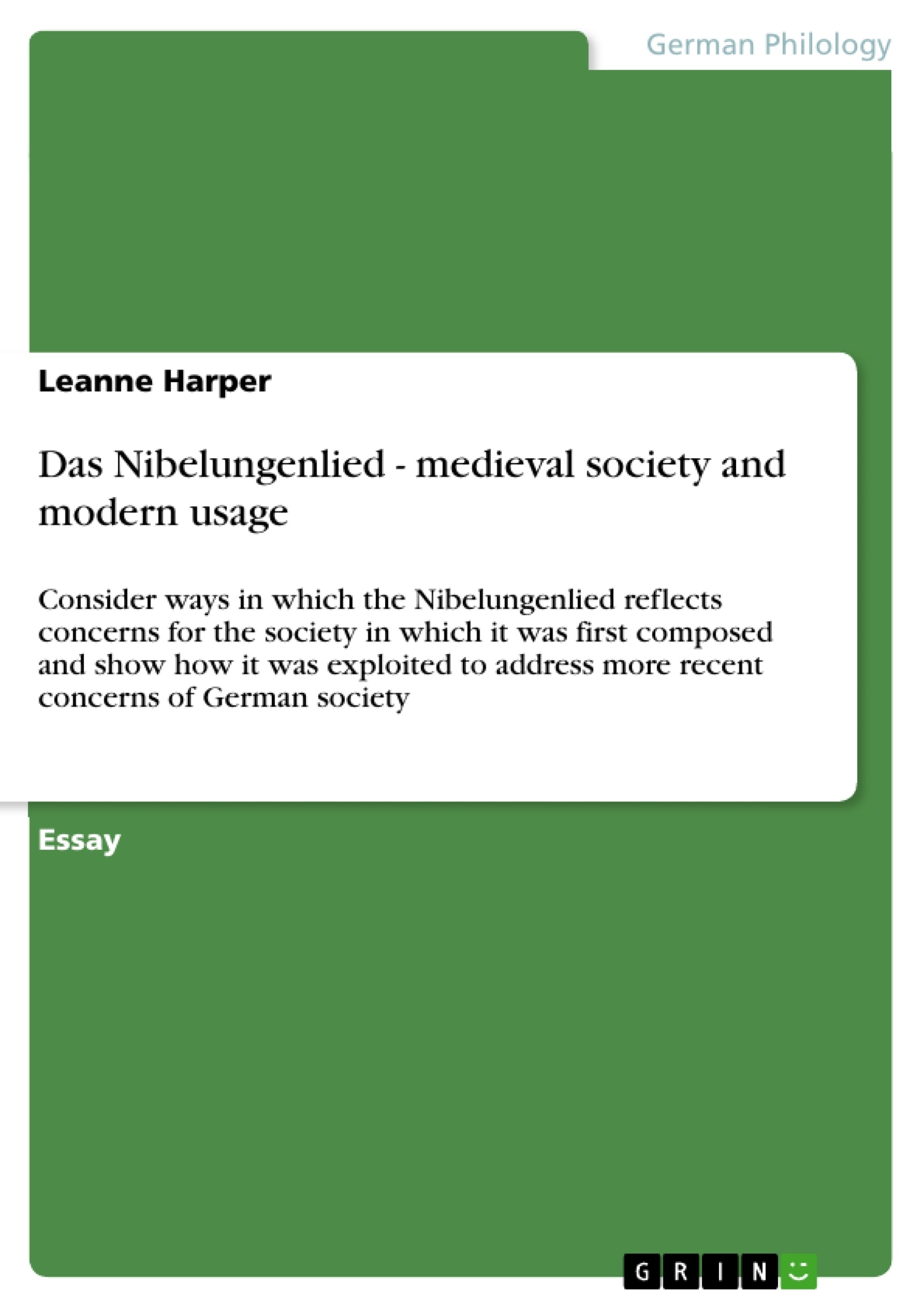This essay tentatively explores the values, motivations and concerns of courtly individuals as portrayed in the Nibelungenlied. As well as taking a look at how the epic was manipulated during the Third Reich to support their ideology.
Table of Contents
- Loyalty
- Honor
- Hierarchal Structures
- The Fragility of Courtly Hierarchy
- The Ambiguous Portrayal of Gunther
- Gender Roles
Objectives and Key Themes
This essay explores the values, motivations, and concerns of courtly individuals in medieval German society as depicted in the Nibelungenlied. It focuses on key themes such as loyalty, honor, hierarchical structures, gender roles, and courtly conduct. The essay then examines how these values were appropriated and adapted in later centuries to address concerns surrounding German identity and the First World War.- Loyalty as a Core Value in Courtly Society
- The Importance of Honor in Medieval German Culture
- The Complexities of Hierarchal Structures and Their Fragility
- The Ambiguous Depiction of Gender Roles in the Nibelungenlied
- The Appropriation of Nibelungenlied Themes in the 18th and 19th Centuries
Chapter Summaries
This essay does not provide a chapter-by-chapter summary but focuses on key themes. The first part of the essay delves into loyalty, demonstrating how it is presented as a paramount value in courtly society, often taking precedence over other bonds, even friendship and personal survival. The example of Rüdiger's tragic dilemma highlights the conflict between loyalty as a vassal and personal ties. The essay further explores honor and the lengths to which characters in the Nibelungenlied go to preserve or reclaim it. The case of Brünhild's honor and Siegfried's murder reveals the complex interplay between personal honor, legal obligations, and moral conscience. The essay also examines hierarchal structures in courtly society, exploring the tensions between the power and fragility of these structures. The examples of Siegfried's marriage to Kriemhild and the portrayal of Gunther demonstrate the consequences of disrupting the established order. Finally, the essay briefly touches upon gender roles and their representation in the Nibelungenlied, highlighting the discrepancy between idealizations of female perfection and the actual societal realities.Keywords
The key themes explored in this essay include loyalty, honor, hierarchal structures, gender roles, courtly conduct, and the appropriation of these values in the 18th and 19th centuries to address modern concerns such as German identity and the First World War. The essay draws upon key figures from the Nibelungenlied such as Rüdiger, Hagen, Brünhild, and Kriemhild to illustrate these themes.Frequently Asked Questions
What are the core values of courtly society in the Nibelungenlied?
The core values include loyalty (Treue), honor (Ehre), and the adherence to strict hierarchical structures and courtly conduct.
How is loyalty portrayed as a tragic dilemma in the epic?
The figure of Rüdiger illustrates the conflict between his loyalty as a vassal and his personal ties, showing that loyalty often takes precedence over survival.
What role does honor play in the conflict between the characters?
Honor is paramount; for example, Brünhild's perceived loss of honor leads to the plot to murder Siegfried, demonstrating how honor drives the plot's violence.
How was the Nibelungenlied used during the Third Reich?
The epic was manipulated to support Nazi ideology, emphasizing themes of "Nibelungentreue" (unconditional loyalty) and German identity to address political concerns.
How are gender roles depicted in the Nibelungenlied?
The essay explores the discrepancy between idealized female perfection and the complex, often powerful roles played by figures like Kriemhild and Brünhild.
- Citar trabajo
- Leanne Harper (Autor), 2011, Das Nibelungenlied - medieval society and modern usage, Múnich, GRIN Verlag, https://www.grin.com/document/200828



